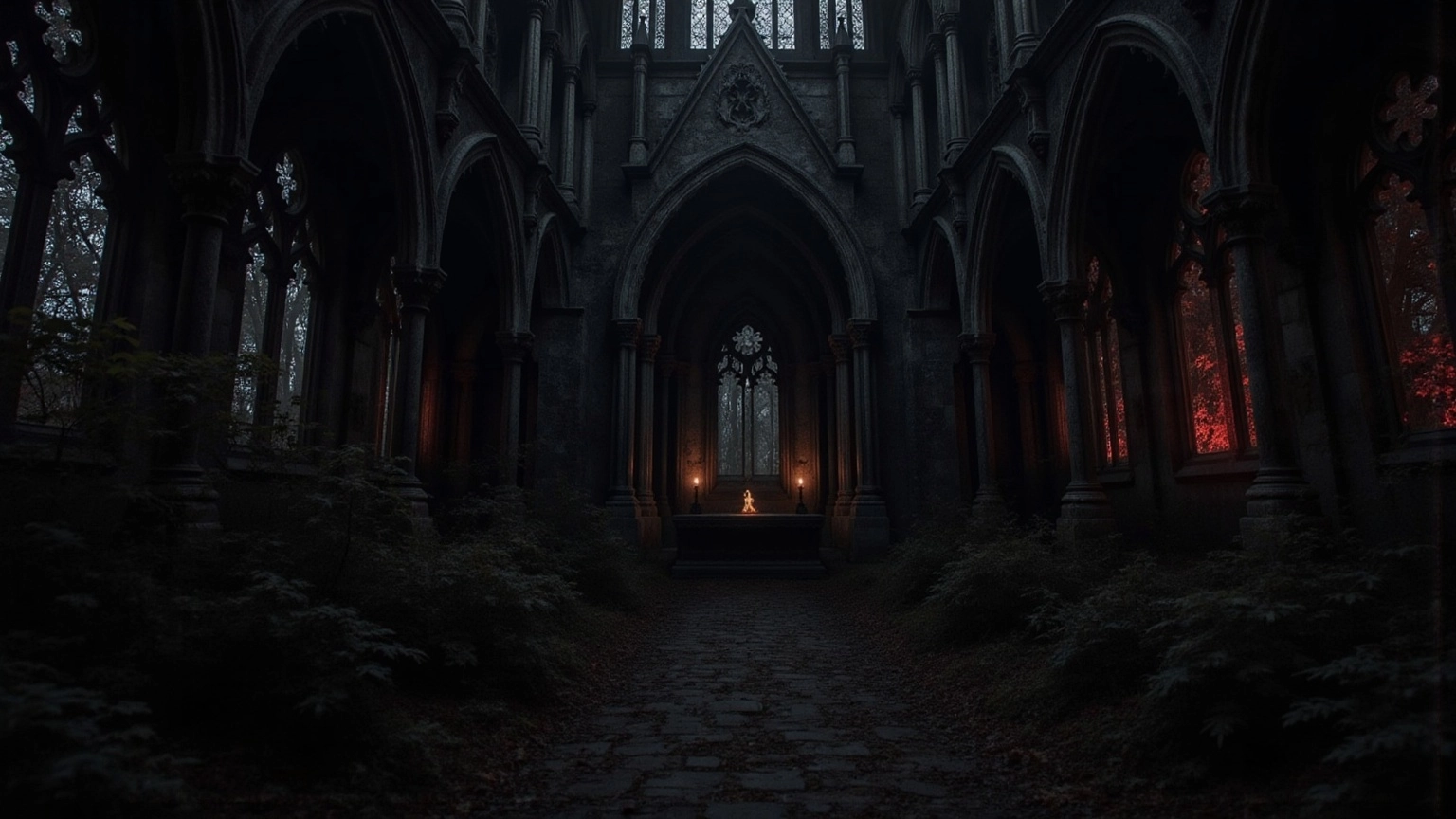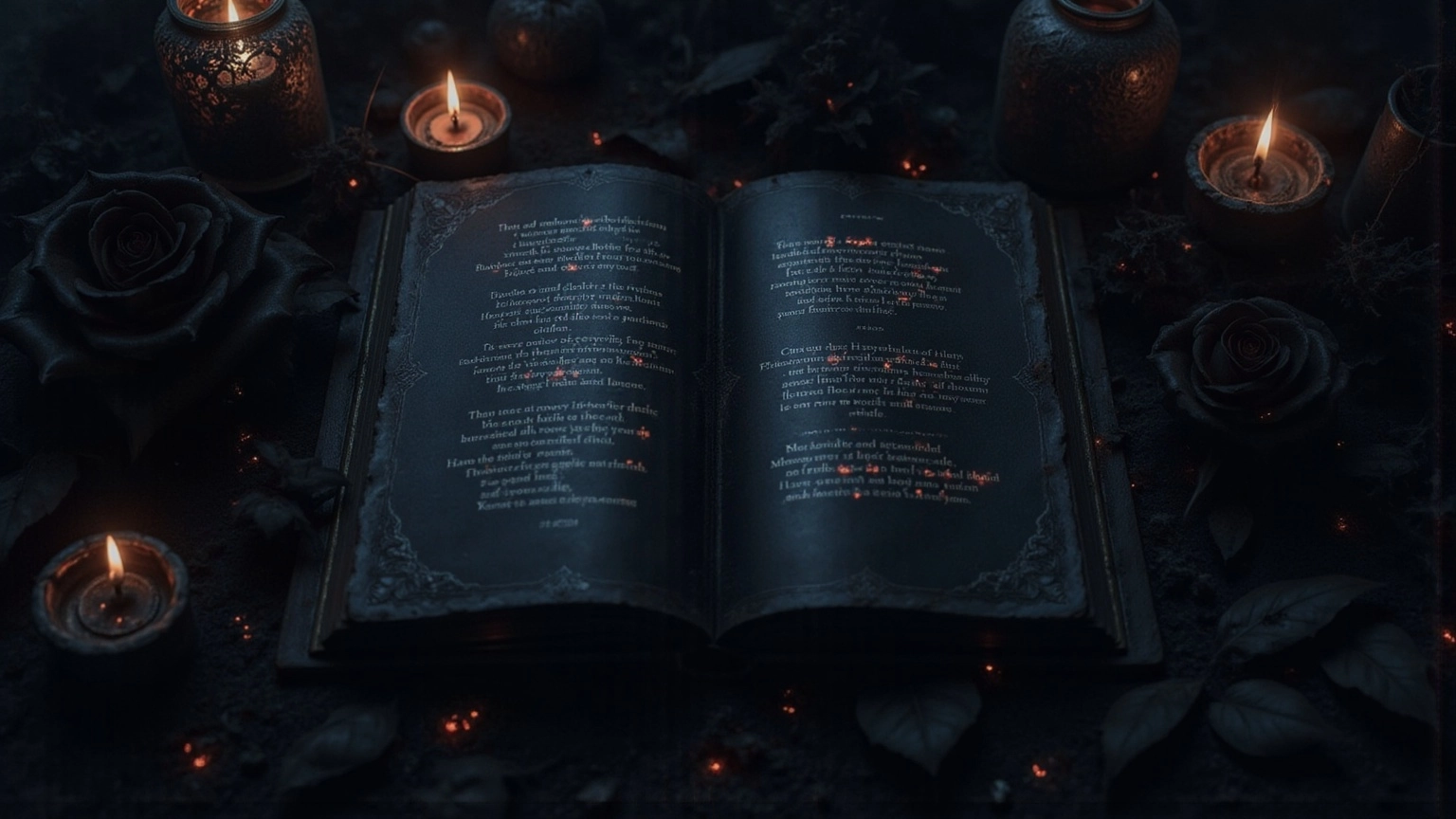
Gothic Poetry: Definition, Origins, and Key Characteristics
Share
Overview
Gothic poetry—what is it, really? It's a dance with shadows, a plunge into the abyss where dark themes and supernatural whispers intertwine. This genre doesn't just scratch the surface; it digs deep into human anxieties and societal fears, engaging readers on a psychological level that lingers long after the last line. Emerging from the chaos of historical upheavals, gothic poetry is a fierce response to the tumultuous world around us.
Imagine melancholic themes wrapped in vivid imagery, each word a brushstroke painting the sublime. This exploration of the gothic not only enriches literature but also beckons us to confront our own fears and desires. Are you ready to wander through the haunting corridors of this literary realm? Embrace the emotional depth and let the echoes of the past guide you into the rich tapestry of gothic poetry.
Introduction
Gothic poetry is a haunting echo of our deepest fears and desires. It weaves together dark themes, supernatural elements, and an emotional intensity that grips the soul. This literary form dives headfirst into the shadows of existence, confronting death, decay, and the macabre, all while thickening the air with mystery and suspense.
But it’s more than just storytelling; it’s a mirror reflecting societal fears and personal anxieties. It enriches the tapestry of literature, inviting you to confront those raw emotions tied to loss and longing. Gothic poetry resonates, influencing modern narratives and deepening our understanding of love, fear, and the unknown.
Are you ready to explore the depths? The world of Gothic poetry awaits, challenging you to embrace the darkness and discover the beauty within.
Defining Gothic Poetry: Essence and Significance
This type of verse? Gothic poetry is a literary style that immerses readers in dark themes, supernatural elements, and an intensity that grips the soul. Here, subjects like death, decay, and the macabre are not only explored but also savored, reminiscent of the themes found in gothic poetry, crafting an atmosphere thick with mystery and suspense. The significance of gothic poetry lies in its power to evoke profound responses, prompting reflection on the human condition and solidifying its place in the literary canon.
Gothic poetry isn’t merely about storytelling; it acts as a mirror reflecting societal fears and anxieties, serving as a potent medium for unraveling the complexities of human emotions—especially those tied to loss and yearning. Fear, dread, fairness, and retribution are central motifs in gothic poetry that resonate deeply, connecting with audiences on a psychological level. Recent research reveals that these motifs not only captivate but also deepen our understanding of the emotional landscapes we traverse in literature. The video lesson on literary characteristics underscores how these themes amplify the genre's emotional punch.
Experts weigh in, highlighting that dark literature, particularly female dark fiction, amplifies horror and fear, giving voice to women's experiences. An educator points out, "Female literature of the genre is defined by horror and fear, emphasizing women's voices, frequently authored by women." This focus on psychological depth is crucial; it allows readers to truly connect with characters’ struggles and triumphs, elevating the narrative’s impact.
Prophecies and curses in dark novels? They’re not just plot devices; they foreshadow events, weaving suspense and inviting readers into a dialogue about fate and free will. This interplay of themes and emotions underscores the enduring significance of dark verse in contemporary literature, shaping modern authors and enriching the literary landscape. The suspense these elements create beckons readers to explore the unknown, much like the journey Darc Arts offers—a unique blend of cannabis wellness and gothic poetry.
In essence, gothic poetry reflects the darker shades of human experience while playing a pivotal role in shaping emotional expression in literature. It’s a vital, influential genre that continues to inspire and provoke thought—an invitation to delve deeper into the shadows.
Historical Context and Origins of Gothic Poetry
Gothic poetry emerged in the late 18th century as a shadowy companion to the rise of dark fiction amid social and political upheaval. The Industrial Revolution and the Enlightenment shaped this genre, pushing writers to confront fear, the supernatural, and the sublime. Horace Walpole's 1764 novel, 'The Castle of Otranto,' laid the groundwork for dark literature, its influence echoing through countless subsequent works, particularly in gothic poetry, where poets infused their verses with dark elements drawn from medieval architecture, folklore, and the emotional turmoil of the Romantic era. This historical backdrop is crucial for grasping the thematic depth and stylistic choices that define gothic poetry. The clash between the industrial landscape and the longing for the sublime created fertile ground for exploring humanity's darker facets, enriching the literary tapestry.
Enter 'Join the Darc Side.' This case study showcases how Darc Arts intertwines elegant aesthetics, cannabis wellness, and the allure of the unknown, beckoning consumers to embark on a unique journey. By fostering community and shared experience, Darc Arts solidifies its brand identity, captivating cannabis enthusiasts who resonate with its mission. The connection between dark verse motifs and the brand's essence deepens the narrative, inviting readers to explore the artistic dimensions of cannabis enjoyment through Darc Arts' premium THCA prerolls and infused products, all crafted with a commitment to quality and safety.

Key Characteristics of Gothic Poetry
Key characteristics of this genre? Let’s dive into the shadows.
- Dark and Melancholic Themes: This style thrives on death, despair, and the supernatural—echoes of the writer's inner chaos. Dark subjects resonate deeply, especially with younger women, the heartbeat of dark literature. And guess what? The transformative powers of THCA ignite this exploration, unlocking hidden realms of creativity and inspiration.
- Supernatural Elements: Ghosts, spirits, and otherworldly beings haunt these pages, crafting a rich tapestry of mystery and fear. The allure of the supernatural in dark verse captivates audiences, drawing them into the thrilling unknown, just like the offerings from Darc Arts, beckoning you to engage with the dark narrative in a uniquely profound way.
- Vivid and Evocative Imagery: Poets wield rich, descriptive language to conjure strong visual and emotional responses, plunging readers into eerie settings and emotional landscapes. This vivid imagery is the lifeblood of the genre, enhancing the experience for those who crave gothic poetry and its aesthetic. With 'Darc Arts' premium THCA products, like the diamond-coated pre-rolls, you’re not just consuming; you’re experiencing a hauntingly powerful cannabis journey.
- Exploration of the Sublime: Dark literature dances with the sublime, illustrating the tension between beauty and terror, the immense force of nature, and the unknown. Critics hail works like Theodore Roethke's 'In a Dark Time' as pivotal, showcasing how these themes resonate through time. At Darc Arts, this exploration reflects our commitment to elevating cannabis culture through sophistication and aesthetics inspired by gothic poetry. These traits converge to forge a style that dares readers to confront their fears and delve into the shadowy facets of existence. This genre stands as a timeless investigation of the human experience. As Darc Arts embodies this exploration through its products, it invites you to engage with gothic poetry in a uniquely meaningful way.
Notable Examples of Gothic Poetry
Dark verse is a realm where emotional richness and thematic intricacy collide. Consider these haunting masterpieces:
- 'The Raven' by Edgar Allan Poe: This iconic poem dives deep into loss and despair, its haunting refrain echoing the narrator's slow spiral into madness. Grief and the supernatural intertwine, captivating readers and marking it as a quintessential dark romantic piece.
- 'Annabel Lee' by Edgar Allan Poe: Another gem from Poe, this poem intertwines love and death, encapsulating the melancholic beauty of a lost relationship. Its lyrical flow and poignant imagery evoke a longing that resonates profoundly.
- 'The Goblin Market' by Christina Rossetti: Temptation and sacrifice dance within these lines, as vivid imagery crafts an atmosphere thick with danger and allure. Rossetti's exploration of feminine experience adds a unique twist to the dark romantic tradition.
- 'Kubla Khan' by Samuel Taylor Coleridge: This piece conjures a dreamlike essence, merging the sublime with the supernatural. It showcases the tension between beauty and chaos, inviting readers into a realm where imagination reigns supreme.
These snapshots not only highlight the thematic depth of dark verse but also showcase the distinctive voices of poets who shaped the genre, appealing to literary enthusiasts with varied tastes. Ling Ma captures this essence perfectly: 'There's tenderness, there's horror. I believe it encompasses a bit of everything.' This sentiment reflects the multifaceted nature of literature within this style.
Just as Darc Arts elevates cannabis culture with its premium THCA offerings—rigorously tested for quality and safety—the emotional and aesthetic elements of dark verse resonate with those who appreciate the artistry of both cannabis and literature. By embracing the themes of gothic poetry, Darc Arts cultivates a community, inviting consumers to join a movement that intertwines cannabis culture with gothic elegance.

Conclusion
Gothic poetry is a profound exploration of the human experience, intertwining dark themes with emotional intensity and supernatural elements. It reflects societal fears and personal anxieties, inviting readers to confront the complexities of loss, longing, and the macabre. From its roots in the late 18th century to its evolution through the ages, Gothic poetry remains a vital part of the literary landscape, continually influencing modern narratives and artistic expressions.
This genre's key characteristics—melancholic themes, vivid imagery, and the sublime—draw readers into the shadows of existence. Poets like Edgar Allan Poe and Christina Rossetti exemplify the emotional depth and thematic richness defining Gothic poetry, resonating across generations. These poems captivate with haunting beauty, fostering a deeper understanding of the emotional states tied to our darkest fears and desires.
Ultimately, Gothic poetry challenges us to embrace the darkness while discovering beauty within. It serves as a powerful medium for emotional expression, encouraging dialogue about the unknown and the complexities of the human condition. As the genre continues to inspire and provoke thought, it beckons all to explore its depths and connect with the haunting elegance that defines the Gothic tradition.
Frequently Asked Questions
What is gothic poetry?
Gothic poetry is a literary style that immerses readers in dark themes, supernatural elements, and an intensity that explores subjects like death, decay, and the macabre, creating an atmosphere rich in mystery and suspense.
What is the significance of gothic poetry?
The significance of gothic poetry lies in its ability to evoke profound responses and prompt reflection on the human condition, solidifying its place in the literary canon.
How does gothic poetry reflect societal fears and anxieties?
Gothic poetry acts as a mirror reflecting societal fears and anxieties, serving as a medium for unraveling the complexities of human emotions, particularly those related to loss and yearning.
What are the central motifs in gothic poetry?
Central motifs in gothic poetry include fear, dread, fairness, and retribution, which resonate deeply with audiences and connect on a psychological level.
How does female dark fiction contribute to gothic poetry?
Female dark fiction amplifies horror and fear, giving voice to women's experiences and emphasizing psychological depth, allowing readers to connect more profoundly with characters' struggles and triumphs.
What role do prophecies and curses play in gothic poetry?
Prophecies and curses are not just plot devices; they foreshadow events, create suspense, and invite readers to engage in a dialogue about fate and free will.
How does gothic poetry influence contemporary literature?
The themes and emotions in gothic poetry shape modern authors and enrich the literary landscape, encouraging readers to explore the unknown and delve deeper into the shadows of human experience.
